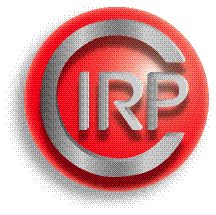Definition
The definition of LCC as quoted from AS/NZS 4536:1999 (Australian/New Zealand Standard 1999) is a process to determine the sum of all expenses associated with a product or project, including acquisition, installation, operation, maintenance, refurbishment, discarding and disposal costs.
Life cycle costing (LCC) is a concept for estimating the total cost or total ownership cost (TOC) which includes acquisition costs (total capital cost, i.e., land acquisition costs and construction costs) and ownership costs (all future costs, viz., installation costs, operation costs, repair costs, service and maintenance costs, and disposal costs), as well as other cost components.
The acquisition costs are often visible as they relate to purchasing assets such as equipment, which include the investment for the raw material cost and up until the equipment is manufactured and has left the factory. The acquisition...
References
Australian/New Zealand Standard (1999) Life cycle costing: an application guide. Standards Association of Australia; Standards New Zealand, Homebush/Wellington. AS/NZS 4536:1999
Baumann H, Cowell SJ (1999) An evaluative framework for conceptual and analytical approaches used in environmental management. Greener Manag Int 26:109–122
Bennett M, James P (1997) Environment-related management accounting: current practice and future trends. Greener Manag Int 17:32–52
Brown R, Straton A (2001) Economic valuation of freshwater ecosystems: thoughts on motivations, methods and issues. WWF/Centre for economic policy modelling freshwater “GREEN” economics workshop, University of Queensland
Clift M, Bourke K (1999) Study on whole life costing. DETR report no. CR 366/98. CRC, Garston
Dhillon BS (2010) Life cycle costing for engineers. CRC/Taylor & Francis, Boca Raton
Emblemsvag J (2001) Activity-based life-cycle costing. Manag Audit J 16(1):17–27
EPA (1993) Life cycle design guidance manual: environmental requirements and product system. Risk Reduction Engineering Laboratory, Office of Research and Development, U.S. Environmental Protection Agency, Cincinnati. EPA-600-R-92-226
Gluch P, Baumann H (2004) The life cycle costing (LCC) approach: a conceptual discussion of its usefulness for environmental decision-making. Build Environ 39:571–589
Henn CL (1993) The new economics of life cycle thinking. IEEE, New York
HM Treasury (1992) PCPU guidance: public competition and purchasing unit. No. 35: life cycle costing. http://archive.treasury.gov.uk/pub/html/docs/cup/cup35.pdf
Hunkeler D, Lichtenvort K, Rebitzer G (2008) Environmental life cycle costing. Society of Environmental Toxicology and Chemistry (SETAC), The United States of America, Pensacola
Little AD (2000) Total cost assessment methodology: internal managerial decision making tool. Center for waste reduction technologies, American Institute of Chemical Engineers (AIChE), New York. http://www.aiche.org/sites/default/files/docs/embedded-pdf/AIChE-IFS-TCAM-Manual_web.pdf
Rebitzer G, Hunkeler D (2003) Life cycle costing in LCM: ambitions, opportunities, and limitations. Discussing a framework. Int J Life Cycle Assess 8(5):253–256
Sherif YS, Kolarik WJ (1981) Life cycle costing: concept and practice. OMEGA Int J Manag Sci 9(3):287–296
Spitzer M, Pojasek R, Robertaccio F, Nelson J (1993) Accounting and capital budgeting for pollution prevention. United States Environmental Protection Agency. Presented at the engineering foundation conference “pollution prevention – making it pay: creating a sustainable corporation for inspiring environmental quality”, San Diego, 24–29 Jan 1993. http://infohouse.p2ric.org/ref/31/30605.pdf
Sterner E (2002) Green procurement of buildings: estimation of life-cycle cost and environmental impact. Doctoral dissertation thesis, Department of Mining Engineering, LuleXa University of Technology
U.S. Department of Energy (1997) DOE G 430.1–1 Chap. 23, Life cycle cost estimate. Office of Information Resources MA-90/Directives, The United Stated of America
US EPA 742-R-95-001 (1995) An introduction to environmental accounting as a business management tool: key concepts and terms. US Environmental Protection Agency/Office of Pollution Prevention and Toxics, Washington, DC
Warren JL, Weitz KA (1994) Development of an integrated life-cycle cost assessment model. IEEE, New York
Westkaemper E, Osten-Sacken D v d (1998) Product life cycle costing applied to manufacturing systems. Ann CIRP Manuf Technol 47(1):353–356
White A, Becker M (1992) Total cost assessment: catalysing corporate self interest in pollution prevention. New Solut Winter 2(3):34–39. https://doi.org/10.2190/NS2.3
Author information
Authors and Affiliations
Corresponding author
Editor information
Editors and Affiliations
Section Editor information
Rights and permissions
Copyright information
© 2018 CIRP
About this entry
Cite this entry
Kara, S. (2018). Life Cycle Cost. In: The International Academy for Production (eds) CIRP Encyclopedia of Production Engineering. Springer, Berlin, Heidelberg. https://doi.org/10.1007/978-3-642-35950-7_6608-3
Download citation
DOI: https://doi.org/10.1007/978-3-642-35950-7_6608-3
Received:
Accepted:
Published:
Publisher Name: Springer, Berlin, Heidelberg
Print ISBN: 978-3-642-35950-7
Online ISBN: 978-3-642-35950-7
eBook Packages: Springer Reference EngineeringReference Module Computer Science and Engineering


